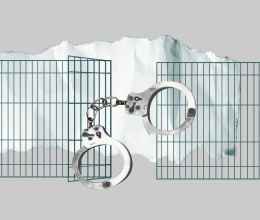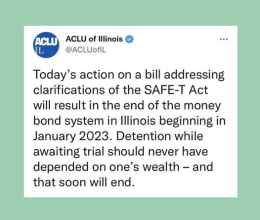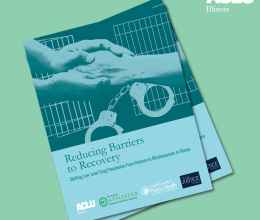
The following text is the testimony of Karen Sheley from a December 8, 2015 hearing before the Local Records Commission of Cook County
Good morning. My name is Karen Sheley and I am Senior Staff Counsel at the American Civil Liberties Union of Illinois, in charge of ACLU’s Police Practices Project. I am involved in several initiatives to reform police practices, including the implementation of a settlement with the City on the Chicago Police Department’s (“CPD”) Stop & Frisk policy. I am testifying today on behalf of the ACLU and its 30,000 members and supporters around the state.
Chicago must have an independent and effective system of investigating allegations of police misconduct. One substantial impediment to effective disciplinary review of alleged police misconduct is the current collective bargaining agreement (“FOP contract”) between the City of Chicago and the local unit of the Fraternal Order of Police. Today, I am here to discuss the destruction of records, which would substantially inhibit effective investigation and resolution of allegations of police misconduct.
I propose that the Cook County Local Records Commission reject any and all requests to destroy these disciplinary records and permanently retain all police disciplinary records. Such records can be critical to establishing the existence of a pattern of allegations from civilians of particular misconduct, which can be relevant to resolving credibility disputes between officers and civilians. Moreover, these records should be retained for the purposes of an automated early intervention system, which can assist in identifying officers with ongoing problems.
The destruction of disciplinary records not only eliminates irreplaceable evidence and information about the history of officers and the CPD as a whole, but such destruction is against the best practices established by the Department of Justice. Under various consent decrees, other police departments, including the Los Angeles Police Department and the Pittsburg Bureau of Police, have been required to retain these records.
For these reasons, we strongly urge you to deny the destruction of these critical records.





